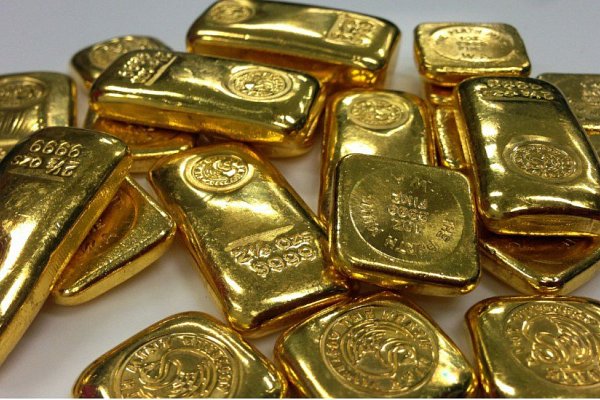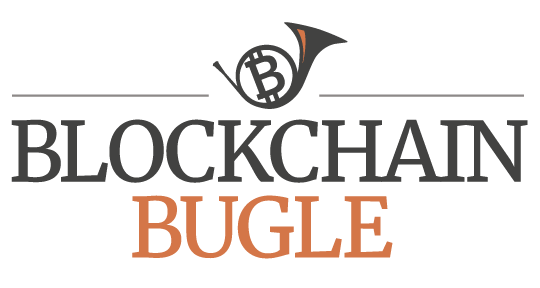Combining Gold Assets With the Blockchain: Britain’s Royal Mint and Vaultoro

News of the recent collaboration between Britain’s Royal Mint and Chicago-based derivatives exchange CME Group has renewed conversations regarding the intersection between blockchain technology and gold assets. This relationship has led to the creation of an innovative and cost-effective approach to the trading, executing and settling of gold transactions worldwide.
Scheduled to launch in 2017, Royal Mint Gold (RMG), as it is known, will provide an alternative to the physical spot-cost model of gold investing that levies management fees and ongoing storage charges. Once fully operational, RMG’s model will offer its customers a blockchain-based digital record of gold ownership that allows for the option of physical conversion with no storage costs.
This development follows the efforts of a number of private bullion dealers to leverage the unique features of blockchain technologies for their online sites. It reflects blockchain’s ability to adroitly track and authenticate data, secured by a global ecosystem of computers which ensure that recorded transactions are tamper resistant and unalterable.
Preventing the manipulation or fraudulent alteration of records is one of the major reasons why a blockchain solution for managing gold assets is so appealing. The bullion industry is particularly vulnerable to fraud on the part of bad actors — also one of the reasons why some online gold dealers have resorted to using bitcoin as a means of thwarting chargeback purchases.
Despite promising assertions supporting the integration of emerging blockchain solutions for gold assets, Ashe Whitener, an economist with a background in gold and digital currencies remains reticent. Says Whitener: “In my opinion, this is only news because the Royal Mint is basically a government-owned entity experimenting with blockchain. Just because something tangible like gold has a serial number on a blockchain, doesn’t mean that it is any more secure, safe or less risky. Since the underlying asset is still physical, we still must place our trust with the Mint in terms of vaulting the gold. So nothing here really changes.”
Vaultoro’s Gold on the Blockchain
London-based Vaultoro.com is reputed to be the world’s first bitcoin to physical gold trading platform. This allows consumers to use bitcoin to buy fully audited and insured bullion that’s secured in a top-tier vaulting facility in Switzerland. The value proposition for customers is that they are able to steer clear of traditional banking and fiat systems. This allows them to remain liquid with their gold purchases without worry if something happens to the Euro or the banking system. Because the gold is allocated in a customer’s name as their legal property and is not listed on Vaultoro’s balance sheet, it cannot be accessed by outside parties.
Josh Scigala, Co-Founder and CEO of Vaultoro, believes that the blockchain offers superior functionality over other protocols because of its transparency. Says Scigala: “I, along with many other people, lost a lot of money when MtGox collapsed even though they held it in fiat. This is because when you have fiat in a bank, it is not your property anymore. It is a promise to pay you back. This loss inspired me to create the most transparent exchange in the industry by having the counter asset be allocated in gold instead of fiat, which every other exchange was doing. With Vaultoro, the gold is held in a bailment contract. This allows us to use the blockchain to jump in and out of the gold, even down to 5-cent levels.”
Consumers’ biggest concern and fear when purchasing gold online, notes Scigala, is that their gold purchase will not find its way to the vault. This is why Vaultoro has partnered with Pro Aurum Switzerland, one of the largest and most established vaulting facilities in Europe. The facility is audited by BDO International, one of the largest auditors in the world, and is fully insured against theft and damage.
One of Vaultoro’s main strategic advantages is a concept Scigala refers to as “real-time, glass books public auditing,” where anyone can verify whether Vaultoro is operating at full reserves. This protocol, he says, was heavily inspired by the bitcoin blockchain and its pseudonymous public keys.
Every user receives an anonymous ID that allows them to log in and out of Vaultoro. When they log out, they can check the page where every anonymous ID is published and access their current bitcoin and gold holdings. This allows them to ensure that their holdings are correct and then see the sum of all users’ holdings. They can also see Vaulting Facility statements, as well as auditor certificates from the BDO and insurance paperwork.
“This is a very elegant way of making our exchange entirely transparent with full proof of 100 percent reserve, while keeping users private,” said Scigala. “Our next step is to publish every single trade onto the blockchain so that there is always a provable snapshot of the user holdings every 10 minutes.”
Another concern for many customers is about not having physical possession of the gold. “I often tell people that if you want to know the risk of something, talk to an insurance company, because their whole business is about statistical risk assessment and pricing. It is far, far, far more expensive to protect gold stored at your home, than it is to insure it in a world class, high security, fully audited, professional vaulting facility. Not only that, but when gold is stored with Vaultoro, the customer has instant liquid access to it. And, of course, a request for physical delivery or gold pickup can always be made with Vaultoro, if they choose.”
Despite calls in some circles for gold being backed by bitcoin, Scigala holds a different view. “In my opinion, we do not need to back a token with gold because bitcoin is so fast you can jump in and out of allocated gold very quickly, and it gets around [convenience] issues. You can just convert to gold when you want to and outsource the currency side to the bitcoin protocol.”
Concludes Scigala: “We at Vaultoro have worked hard to get past the blockchain hype and make people realize that it’s the currency of bitcoin that is so cool. The blockchain and proof of work is amazing but decentralized currency and issuance on the blockchain is even cooler and makes gold relevant again as a money.”
The post Combining Gold Assets With the Blockchain: Britain’s Royal Mint and Vaultoro appeared first on Bitcoin Magazine.


